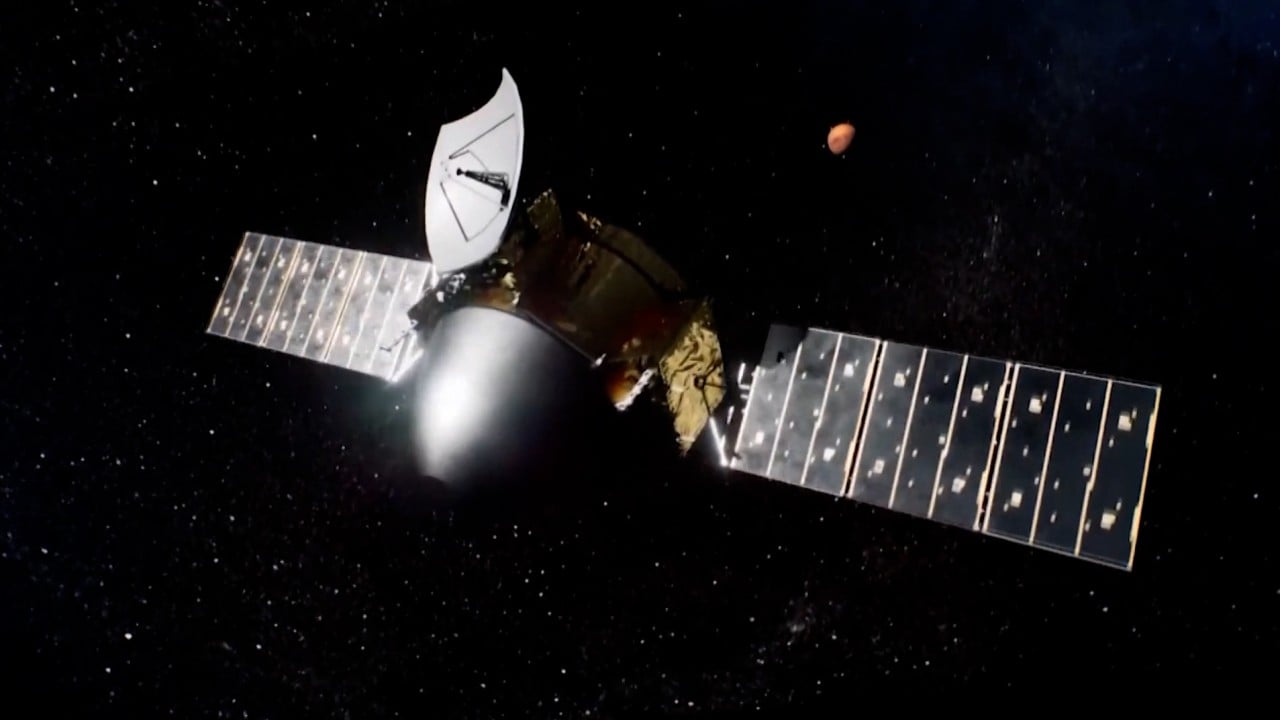[ad_1]
The International Space Station’s robotic arm made a wide swing across the sky before releasing a three-tonne package of dead batteries and other waste. The enormous piece of junk is expected to circle the Earth for up to four years before re-entering the atmosphere.
The official China Space News website quickly published an article warning about the risks of such an act. “Let’s pray it will not come back and hit the space station,” it said.
Beijing and Washington are expected to clash more frequently over space junk issues as the Earth’s orbit becomes more crowded. Of the 20,000-plus pieces of debris currently tracked by China, more than half appeared in the last decade or so, according to a study published this month.
Lead author Feng Hao and his colleagues at the Beijing Institute of Spacecraft System Engineering said the rapid growth of orbiting debris in orbit was alarming because they could collide with one another, and the total number would increase exponentially.
“The final result [could be] that even if humans no longer carried out any space activities, the amount of space debris would continue to increase, and the door to space for humans may be completely blocked,” Feng said.
Competition between China and the US in space will make matters worse. Both countries have ambitious plans to massively expand their space programmes in the next few years. Tens of thousands of satellites will be launched, along with the construction of large-scale infrastructure in orbits from the Earth to the moon.
According to Feng’s estimate, the geostationary orbit will be so crowded by 2033 that adding more satellites to it may trigger disastrous chain collisions.
Space debris “could become a political issue as important as climate change,” said a Beijing-based space scientist who asked not to be named due to the sensitivity of the issue. As the available room in some critical orbits grows smaller, the tension between the US and China – currently the two most active players in space exploration – “will inevitably increase,” he said.
“China may hold the US accountable for historical dumpings, the US may try to cap China’s future missions. This will have a profound impact on geopolitics involving every country on Earth.”
The political rift between China and the US is also hindering international collaboration against space junk. Information sharing on debris tracking is insufficient and, because some of the technology tumbling in space has military applications, neither country has any plans to work together in clearing it.
“It’s like two drivers fighting for the wheel while the car is running towards a wall,” the Beijing-based researcher said.
According to China’s space authority, the Long March CZ-5b rocket was deorbited as planned after launching the Tianhe core module of the Chinese Tiangong Space Station last month. Its remaining fuel was sprayed to reduce the risk of an unexpected explosion. They also point out that the rocket debris is far from the biggest man-made object to fall to Earth.
But it was just the first of many similar flights ahead. As the largest member of China’s current fleet, the single stage rocket will bear most of the workload for the Tiangong Space Station’s construction. It will have to carry the heavy modules into as high an orbit as possible, making its re-entry difficult – if not impossible – to predict, according to space experts.

01:48
China’s Tianwen-1 Mars probe goes into orbit around the red planet
Some components of a previous CZ-5, mostly an empty hull, previously crashed in an African village but thankfully without causing any damage or injuries, according to reports.
To space scientists, debris falling back to Earth poses less of a threat than the tonnes of material which remains in orbit.
SpaceX’s Starlink project plans to send 42,000 small satellites into near-Earth orbit, bringing fast internet connection to the remotest areas, as well as to military users, according to CEO Elon Musk.
But calculations by Feng’s team showed the American project would increase the risks of collision in near-Earth orbit by nearly 18 times. These small satellites would pose a “serious threat” to other countries’ space assets, including the China’s new space station, the researchers said.
Gan Yong, an official with the China National Space Administration overseeing international collaboration, said China in the past had been shy in the management of the world’s space affairs.
“In terms of global governance in space, China’s participation is incomplete, voice and influence insufficient, and leadership in major cooperation projects too weak,” he said in an article published last month in the journal China Aerospace.
But this would change soon, Gan said. China “will respond seriously to the attempt by the United States and other Western countries to lead the construction of a new international space order”. He added that China will “team up with Russia and other friendly countries … to counter space security threats and establish a code of conduct for space development and utilisation”.
[ad_2]
Source link